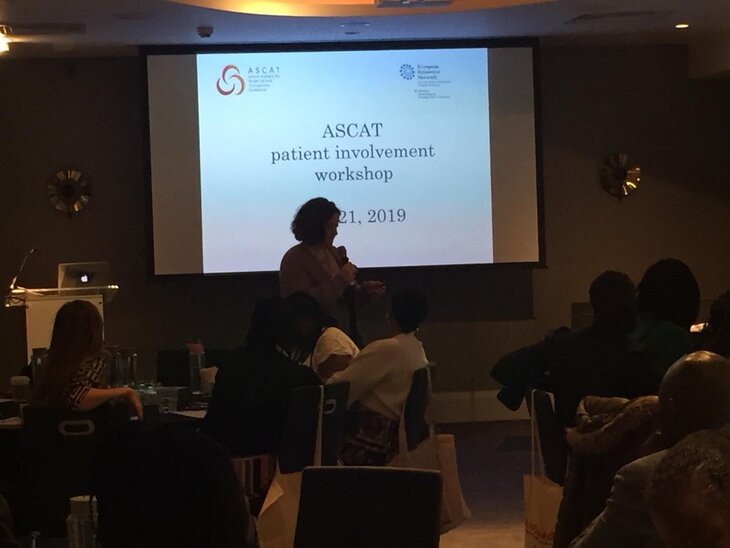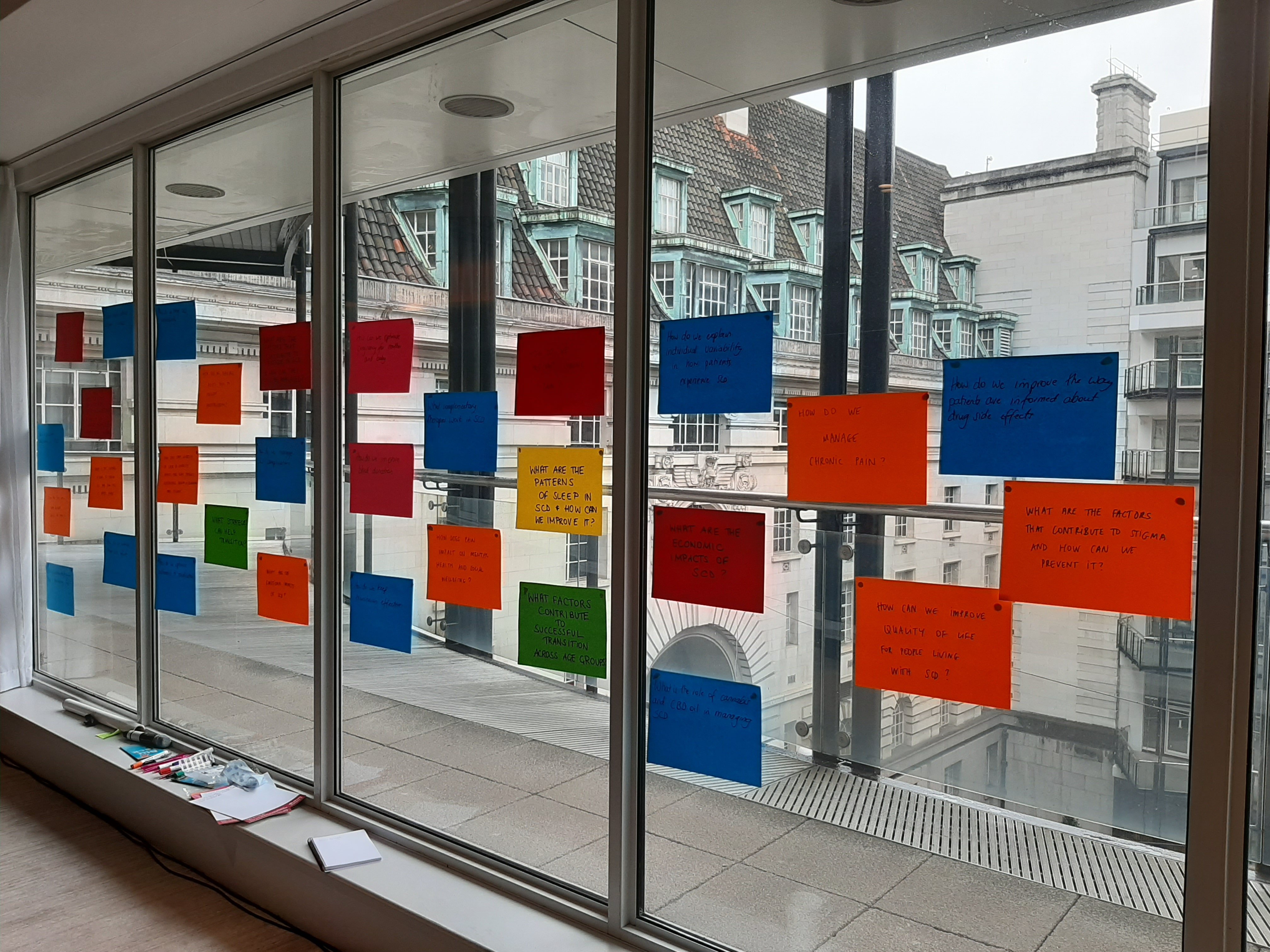Sickle Cell Disease Research Prioritisation Workshop at ASCAT 2019, a joint project of ERN-EuroBloodNet and ASCAT with a "Top 10" priorities on research from patients' perspective

The meeting has provided the perfect opportunity for patients to experience what Patient and Public Involvement is while demonstrated the that the medical profession is willing to change and listen to the patient voice.
Sickle Cell Disease (SCD) is an inherited disorder of the red blood cells. Being a lifelong chronic condition, SCD can lead to disability or even premature death in its severe forms. Up to now, SCD is one of the few rare anemias that do not have, in every country in Europe, an adequate educational contribution to daily management of the disease.
ERN-EuroBloodNet is promoting educational activities addressed to SCD patients in order to encourage their formation as advocate and expert patients. ERN-EuroBloodNet is also providing a representation of SCD European community able to make manifest patients' needs and facilitate access to care.
The SCD Research Prioritisation Workshop at the Annual Scientific Conference on Sickle Cell and Thalassaemia, ASCAT 2019, has been a joint project of the ERN-EuroBloodNet together with ASCAT aiming to create a patient forum with at least 20 patients coming from EU countries that would gather before and during ASCAT to share experiences, build partnerships across countries and share good practice and ideas for patient support groups.
During the workshop, everyone got the opportunity to express their views on the most important aspects of living with SCD that might be improved with more research under the moderation of three experienced facilitators: Noémi Roy, Sandy Hayes and Catriona Gilmour-Hamilton . The meeting has provided the perfect opportunity for patients to experience what Patient and Public Involvement is while demonstrated the that the medical profession is willing to change and listen to the patient voice.
What do you think SCD research should be about? In your experience, are there aspects of living with SCD that demand greater attention by doctors and scientists? Those two main questions have been addressed to the 28 participants coming from 7 EU countries, 5 non-EU countries, a group made by patients living with SCD, relatives looking after children with SCD and representing at least 10 National patient organizations.

A "top 10" list has been presented by participants to the audience of medical practitioners of ASCAT, in the plenary session. This following list represents what people living with sickle cell disease would like the research community to focus on:
- How can we find a universally available cure for sickle cell disease?
- How can we improve quality of life for people living with sickle cell disease?
- What are the implications of sickle cell disease for work and education? How do we advise people, employers and schools?
- How do we manage acute pain to prevent hospitalisaton?
- How does staff diversity or lack of diversity affect the way patients experience racism, discrimination and stigma?
- How do we harness the political agendas to improve care for sickle cell disease?
- How can we optimize pregnancy for mother and baby in sickle cell disease?
- What complementary therapies work in sickle cell disease, including CBD oil and cannabis?
- How do we manage chronic pain?
- What is the impact of a comprehensive care team on outcomes for people living with sickle cell disease?
Huge thanks to all who contributed during the workshop!
*This program is sponsored by ASCAT and EuroBloodNet Association through Grants supported by Novartis Pharma AG and Global Blood Therapeutics, Inc.
